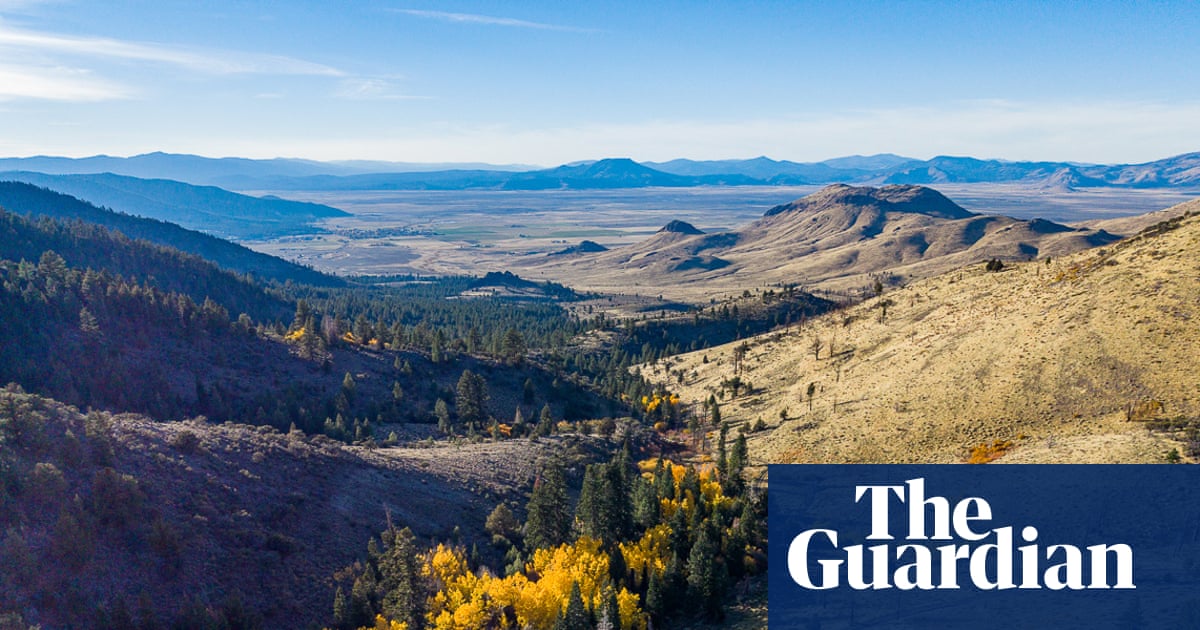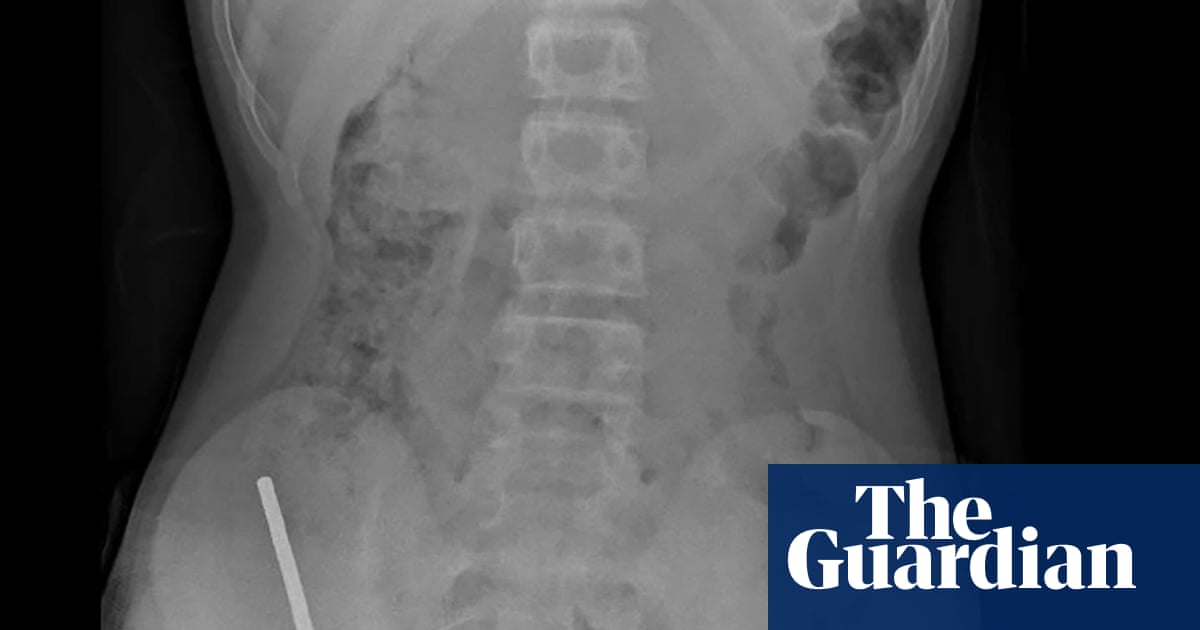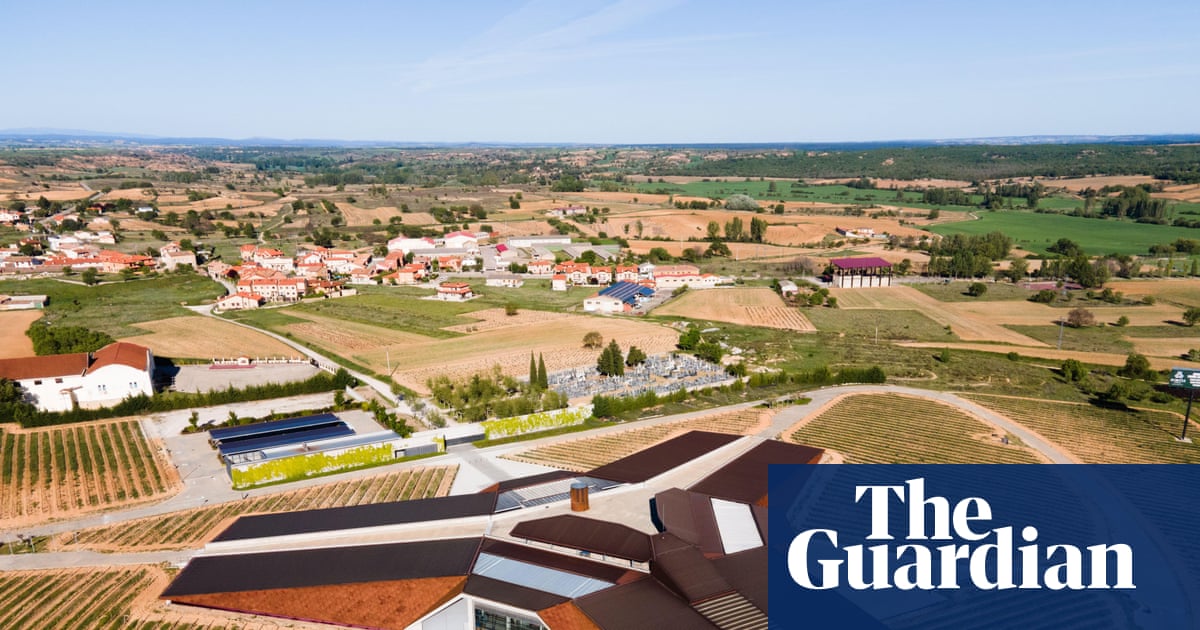The surf was up off the north coast of Cornwall but a hardy band of adventurers turned their backs on the temptations of the sunny beaches and headed inland to burrow into the darkness.
Over the next few hours members of the Carbis Bay Crew explored the shafts and tunnels of an old mine, laughing, joking and making sure each other was OK as they clambered down precipitous ladders and squeezed through tight gaps.
A new documentary called The Lost Boys of Carbis Bay delves into the world of the crew and paints a surprisingly touching picture of the support network its members have created.
It turns out that the darkness of Cornwall’s disused copper and tin mines makes a good environment for men – most members are male – to talk about the tribulations of life on the surface.

The director, Dan Simpkins, said the film’s subjects were far from stereotypical thrill-seekers but mainly working men who find in the mines a space for camaraderie, connection and reflection.
He said: “This documentary is about more than a hobby – it’s about the search for purpose and the importance of community.”
Simpkins wasn’t sure where the story was going when he began to film the men but thought it might turn into an exciting adventure story. In the end it was much more subtle.
“It’s about finding community in the most unexpected of places. There’s nothing that really holds the men together apart from the act of mine exploring. If I said to them: ‘Oh, it’s for your mental health’, they would probably laugh at me.
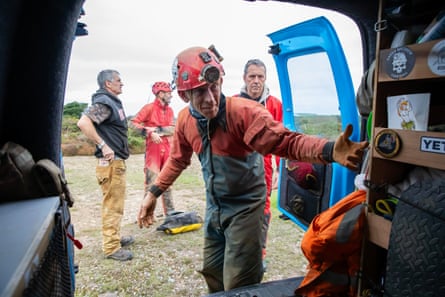
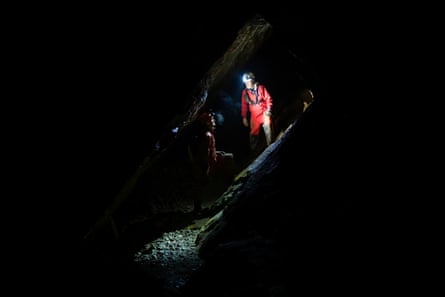
“They deflect with banter, but being underground demands presence. As they abseil, climb and crawl through the mines, they are forced into the moment, away from the pressures of daily life.”
Ahead of the premiere, the Guardian was taken underground by the Carbis Bay Crew, which has more than 50 members, aged from 16 to over 80.
The rendezvous point was a transport cafe off the A30 in west Cornwall. Everyone piled into the back of a VW van driven by Pat, a long-term member, and driven to a layby overlooking a surf beach.
There was a hike to the top of a hill and a push through gorse to a mine entrance. A corner of Cornish pasty was thrown down into the darkness to appease the “knockers”, gnome-like creatures said to live underground. Then came a 60m descent on ladders into the depths of the mine.
after newsletter promotion
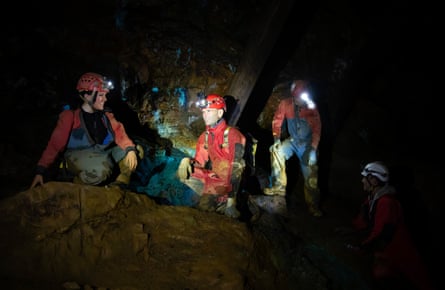

One of the crew, Tim, 48, a supermarket worker, said he loved being underground. “This is proper Cornish history. It’s frozen in time. You see slices of our heritage everywhere underground.
“After a week of work, all you’re thinking about is being here, staying safe and making sure the other guys are safe. There’s none of the pressures of everyday life here – you’re living in that moment.”
Time seems to pass in a different way. “There’s no sun, there’s no clocks down here,” said Tim. “There’s no sense of time. Sometimes when you’re going back up the ladder, you’re thinking, where’s the sun gone. And then you realise it’s night-time.”
Paul, 66, who works on offshore rigs, said he began going underground to find out why his brother, who died in a road accident, did it. “He made a rope ladder and used to go off exploring on his own. He’d come back with fantastic rocks. He used ask me to go with him. I used to tell him he was mad but I see now what he was up to.”

Chris, 61, a retired engineer, said he loved exploring. “I’m naturally inquisitive any way. My wife tells me one of these days curiosity will kill the cat.”
Pat, 58, almost was killed recently. He fell about 20m on to rocks and woke up in hospital seven days later. He is on the mend but staying on the surface for the time being.
“I like the sporting element, the challenge of getting in, getting out. It’s all about trying to get somewhere and no one else has been for ages. I don’t think any of us think we’ve got mental health problems but I think it’s cathartic. Escapism is down there. You’re in the moment.”
+ The Lost Boys of Carbis Bay can be seen on Friday, 21 November at the Kendal Mountain festival in the Lake District.

 3 months ago
52
3 months ago
52





